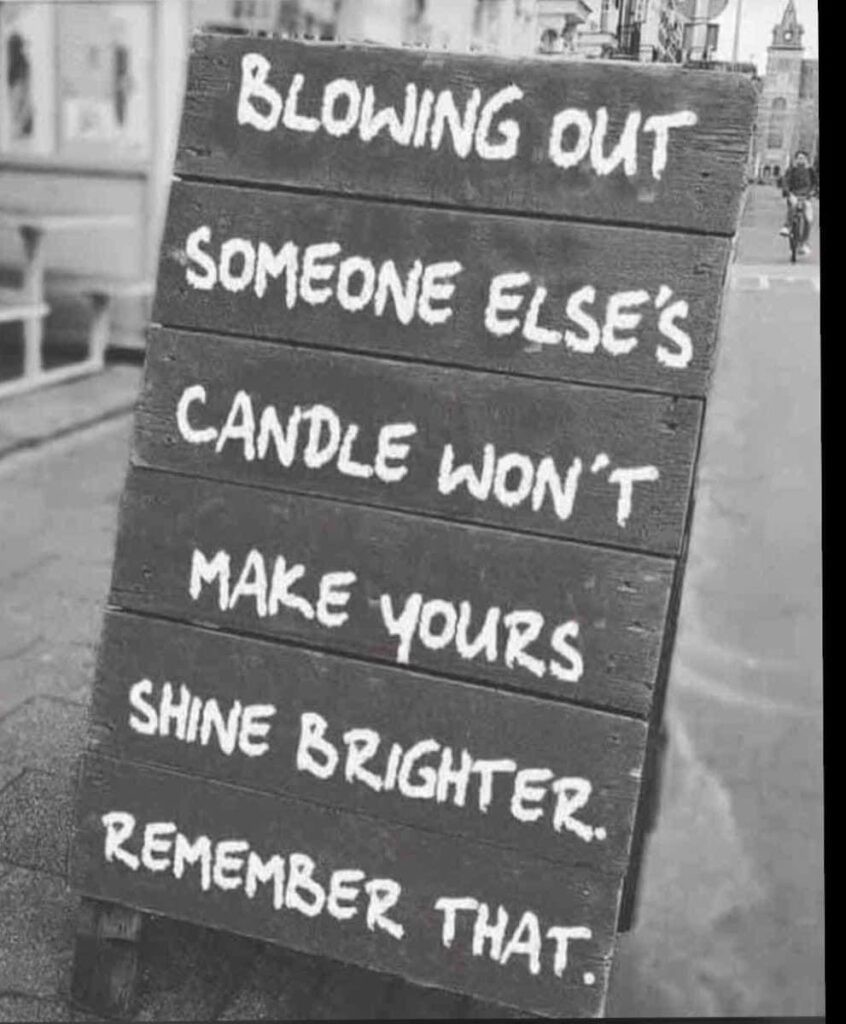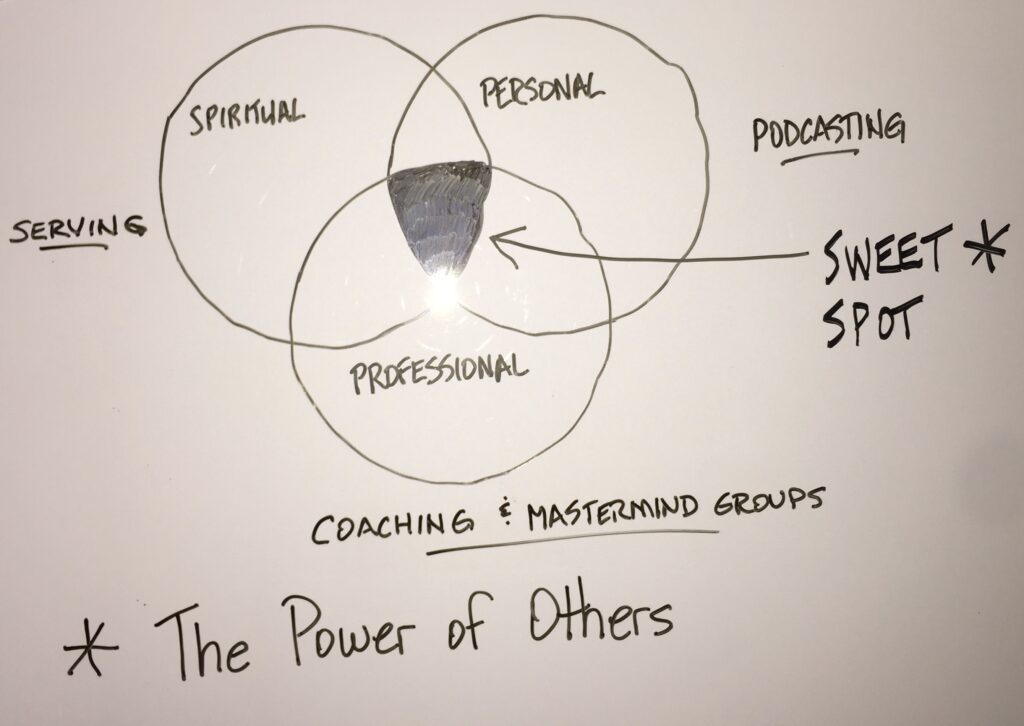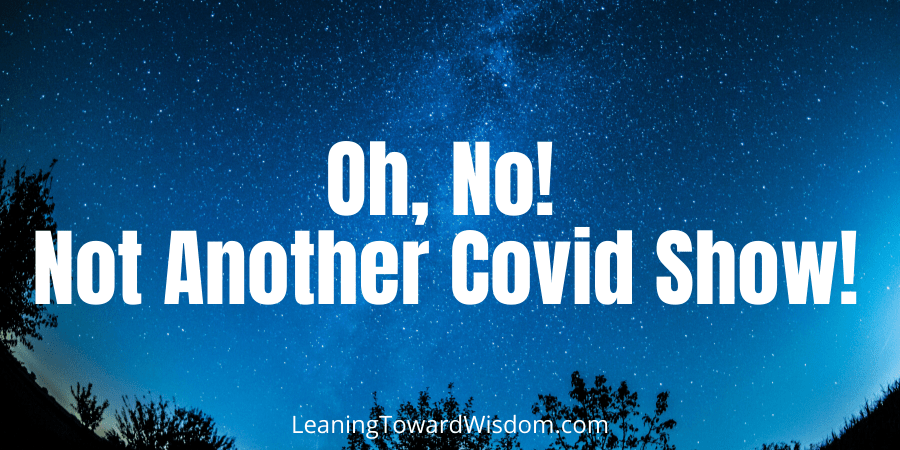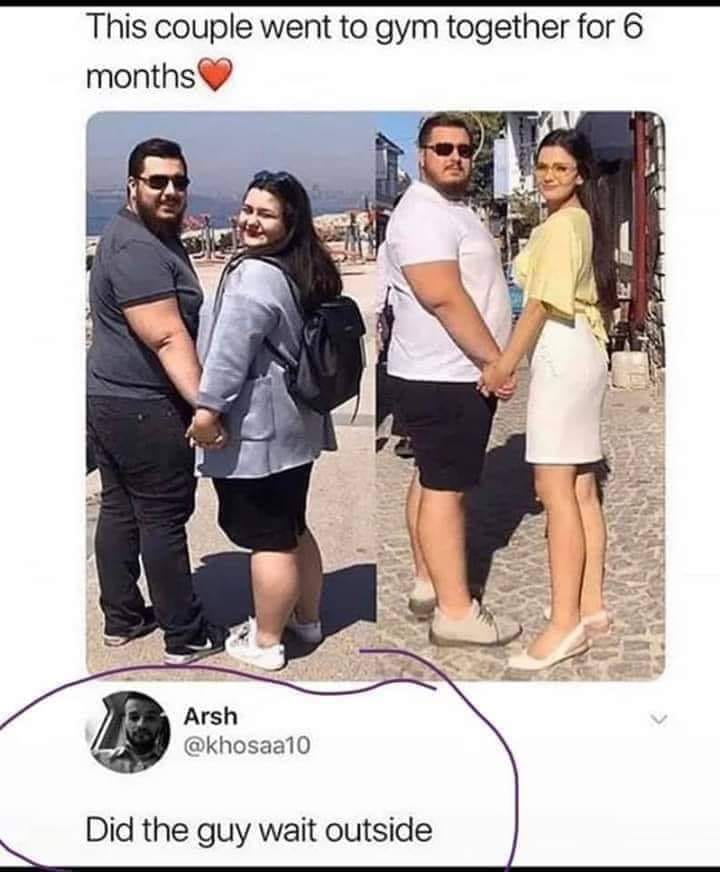I’m Sure There’s A Way Forward (Season 2020, Episode 10)
Podcast: Play in new window | Download (Duration: 1:09:13 — 63.4MB)
Subscribe: Apple Podcasts | Spotify | iHeartRadio | Email | RSS | More
She was in the midst of a struggle. It was fresh though, which is never the best time to do much more than encourage. We reviewed the facts – the things she knew to be true as opposed to the things she could be assuming. At some point I said it.
“I’m sure there’s a way forward.”
Just because it’s not apparent right now doesn’t mean it doesn’t exist. Figuring out ways to escape isn’t often apparent. You’ve got to search high and low, devoting yourself to figuring it out. I’m thinking of that classic film, The Great Escape. Those prisoners of war had to consider a variety of paths forward in their attempt to escape. It required lots of thinking, pondering, planning, debating, and figuring it out. It also involved many setbacks and high risks.
Nobody said the path forward would be apparent or easy. Besides all that, sometimes endurance is the path forward. Not overcoming.
I’ve lost some friends – close friends – to fatal health issues. There was no overcoming of their illness. But each of them had to find a path forward so they could more successfully endure their eventuality.
Pain. Sorrow. Sadness. Disappointment.
EVERYBODY has experienced plenty of it. EVERYBODY has plenty of things they could dwell on to serve as excuses. EVERYBODY has lots of circumstances – some beyond their control and some not – that might compel them to embrace being “victims.” NONE of us are immune.
A few years ago I suffered a personal setback. One I’ve alluded to in the past. It prompted me to surround myself with older men – each one a gospel preacher who I’d known all my life. I figured these were the guys who could help me find a way forward. And sure enough, they did.
I’m unsure of how timing works. I’m very sure about God’s providence though – meaning God’s ability to work through the natural courses of life. We all make up our own mind. We make choices and behave in ways we choose. The Bible pretty clearly teaches us that God can and does use the natural events and circumstances of life for his Will. If I choose to behave poorly, it’s not God’s fault. He’s not behind it. It’s my own free will in motion. But my poor choice can still be leveraged by God to serve some purpose that may not be clear for a long time – if ever.
One by one these 3 older sages in my life passed on…leaving me alone and pretty much without any more older men in my life who had served me as they had all my life. I’m not bringing it up to lament my plight, but to illustrate how urgent it is for all of us – no matter what we’re facing – to find a way forward. My confession is that when I lost the first one I took great comfort that I had him for as long as I did. I was especially thankful to have had him over the course of the previous year plus. His wisdom was unparalleled. But I was also very grateful I still had the other two even though both had serious health issues (one more so than the other).
Curveballs enter everybody’s life. Mine came when the seemingly healthier of the two was suddenly gone. Even though he was the oldest of the 3 – the youngest was the first to pass – none of us were expecting it. The suddenness of death is always a jolt.
Within a short time, the 3rd and final old man left the planet and entered Eternity. It was expected, but that didn’t make it any easier. Now there were none and my path forward was not apparent. During dark days of sadness and sorrow, it’s hard to find enough light with which to see any path or way. I’m a lifelong insomniac. Inside the Yellow Studio is a red light bulb I burn at night – like an old photographer’s darkroom. It provides enough light to see without illuminating the house and waking up Rhonda. But I’ll often traipse into the kitchen from my studio and without any lights on…and my eyes adjusted to the red glow…and I’ll struggle to barely make out where furniture and walls are so I can make my way. If I wait just a bit and employ my memory of where things are, I can make my way safely. But sometimes I rush it and bump into things. Life seems to work the same way. At least for me.
Give it time.
We’ve all been given that admonition when something difficult is happening to us.
Time doesn’t suddenly make something better. It gives us time to make adjustments though. To let our vision adjust to these new surroundings. To grow our confidence and belief. To hopefully become more sure there’s a way forward – we just to have to find it. Figure it out.
On Friday morning – July 10, 2020 – news arrived of some church friends who suffered a tragic death in their family. A son-in-law. Killed in a traffic accident. A young family is now completely torn up. Devastated. Parents. Inlaws. Grandparents. A wife. Five children. At this moment, none of them know the way forward. They only know God will be included and at the forefront because they’re Christians. They know the Faith will remain, but in this moment the sadness and sorrow are overwhelming. Yet, deep down inside the adults are sure there’s a way forward. It’s not important for them to see it right now. The grief and sorrow are too intense in this moment.
Give it time.
The quandary of the path forward is universal.
How?
Followed perhaps by…
When?
Human brainpower is amazing. In many ways. We’re especially adept at coming to terms with things – even sudden tragic events. While we’re often crippled at the moment, we rise to our feet sooner than maybe we expect. Figuring out ways to cope, manage, and find the path forward.
Something else happened on Friday, July 10th…thankfully something far more positive than the tragedy I just told you about. Dan Miller released a new podcast episode – 48 Days To The Work You Love. “Can Your Beliefs Take You This Far?” is the title. I only read the short show notes (so far) to the episode. Dan got my attention with the copy.
This week I received the most amazing testimonial story I’ve ever received. A teenage girl who has been in a wheelchair for four years read 48 Days to the Work You Love, got inspired, hopeful, and began walking with the aid of only a walker. The power of belief opens our eyes, ears, minds, and spirits to a bigger future.
Talk about the power of a mind made up. Dan inserted another headline – The Power Of Belief.
There are so many daily illustrations of the power of belief – a mind made up to find a path forward.
ABC News (this also happened on the same Friday as the other 2 things) ended their newscast talking about a young man who couldn’t get into any college so in his desperation he took a job as a trash man. Going to work every morning at 4 am he found himself surrounded by people who saw something in him. They encouraged him to find the way forward toward his dreams. He found his way into college while continuing to work double shifts on the garbage truck. His GPA? 4.0
The story ended with him sitting with friends as he opened an email to find out whether or not he’d be accepted into Harvard Law School. He opened the email and the celebration began. A young man goes from having no prospects to being admitted to the most prestigious law school in America. More evidence of the power of a mind made up. Proof that we can decide to believe as fact…
I’m sure there’s a way forward.
We’re just not sure what that way is.
Or when we’ll find it.
Which really means one BIG thing. It’s an endurance test. A test of wills that leaves us with a challenge – how committed are we to endure whatever challenges we face? It’ll take however long it takes for us to a) make up our mind that we’re going to find a path forward and b) figure out the way.
Springtime In 2020 (Is this pandemic teaching us anything?)
Yes, it is. Of course, much of it isn’t very good. But we’re still learning ’cause this thing isn’t over.
Is there a way forward past this pandemic?
Just about everybody says they think so, but that’s about the only common ground you can hear. Otherwise, it’s a sea of conflicting opinions where half-truths, lies, conspiracy theories, scientific evidence, medical experience/expertise, and every other form of insight serves to make the noise floor so loud you can’t think. Any of them – or any group of them – could be right, so far as I know. But logic tells me they can’t all be right. And I lack the mental horsepower to know very much. I admit that not only am I NOT the smartest guy in the room when it comes to COVID 19 discussions, but I’m not sure I’m qualified to even be in the room when it’s being talked about.
This much I have learned though, thanks to the pandemic.
The highly opinionated have become more so.
The moderately opinioned have become highly opinionated.
Those falling below the “moderately opinionated” line have become increasingly quiet.
Oh, I forgot one other area of common ground – frustration! All of the above, and those I failed to identify, are all frustrated almost the point of losing their minds.
Google is your friend they say. Just do a search they tell us. Well, that’s not helping. You can find somebody – likely many somebodies – who will support whatever lame-brained notion you hold. Type “I think the earth is flat” into Google and here’s what you’ll find: About 185,000,000 results (0.46 seconds). Just sayin’
The point isn’t to challenge whatever you think about the pandemic – or anything else – but to demonstrate why believing in and finding a path forward is so hard these days. We’re often too busy shouting at each other. Calling each other names (yes, I’m VERY guilty because I’ve personally come to know many “nannies”). Seriously, we just don’t give hardly anybody much consideration these days. Unless they agree with us.
The path forward is rarely smooth, flat and high speed.
It’s less like a nice manicured track and more like mountain terrain.
I can prove it. But you need to join me in looking at your own life. Think of a time when you were at a loss about moving forward. A time when you leaned on somebody who was safe for you. I’m defining safety as somebody who you knew would not use anything against you. They were simply there to help you without regard to any other outcome.
Go ahead. Get that in your mind. Hold it there and let’s think more deeply about what happened for you.
I’m thinking of my own times when I was facing a challenge that tested my belief in being able to move forward. I suppose I knew I could move forward, but I was uncertain how. There have been times when I didn’t even know what my next step should be. When you can’t figure out the next step to take you sure aren’t able to figure out the path.
I’m thinking of my three older mentors – those who have died. They were my first phone calls many times. A couple of years ago I was facing a big dilemma and one by one, I contacted them. I told each of them what happened, how I felt, and what I was thinking of doing. Separate and independent of each other, they each challenged me by disagreeing with me. “You could do that,” said one of them, “but I think it would be a mistake.”
For months and months, they challenged me by disagreeing with me. They pushed me with their knowledge, insights, and experience…peppering me with questions to help me think through my problem. Repeated phone calls seemed to blend into one long, extended conversation designed to push me forward into thinking more clearly. I spent the better part of a year daily studying, reading, thinking, and rehearsing what they were telling me. Frequently, I respectfully pushed back telling them why I felt or believed as I did. Each time, they listened but offered counter-arguments that I wasn’t able to refute. And I tried to refute them, especially early on.
Does any of that resonate with you? Have you ever experienced anything similar? A time when somebody safe challenged you by disagreeing with you?
I’ve described a challenge that was a big problem, but the more I’ve thought about it, even lesser challenges have produced great growth because safe people didn’t agree with me. And I’ve been on the other end with some who find me safe. That is, I’ve been able to serve them by disagreeing with them.
Nothing in these safe conversations is confrontational. Nothing in them is the pushing of an opinion or agenda. Nothing in these conversations was about anything other than wanting my best.
There it is.
The Point
“I’m sure there’s a way forward.” For myself. For people I care about. For people I may not care about.
The way forward doesn’t depend on my view of anybody. It doesn’t depend on your view either. But here’s what does matter – your way forward hinges on how YOU view yourself. And it’s dramatically impacted by how well the safe people around you serve you. Part of that is on you and your openness to let them help you. Part of that is on them and their ability to put your best interests first.
Peernovation is the name of a podcast I produce with partner Leo Bottary. Leo also has a book coming out by the same title. Leo’s tagline for the podcast is, “The power of WE begins with YOU.” So let’s start there. With YOU. With Me. With each of us as individuals.
This focus on self isn’t selfish. It’s necessary because our path forward is OUR path. It belongs to us. Nobody else.
It’s personal responsibility and accountability. This is about each of us accepting responsibility for ourselves. For our thoughts, beliefs, choices, and behaviors. While we’re influenced by others, we have our own lives to live and for good or bad or indifferent – we live the way we choose.
For too many, the path forward is hidden by self-pity and other poor choices. Victim thinking is so insidious because it robs people of the power necessary to move forward. We can’t move forward and remain stuck in the past. They’re incongruent. We have to pick one or the other. Not both.
Forgiveness is a subject that leaps to my mind. Our willingness – not our ability because forgiveness is within our power, but it may not be part of our willingness – to forgive helps us move forward or it cements us in our past.
Our moving forward is like that. It depends on us making up our mind that we’re going to do it even though we may have no idea how. Until or unless we do that, nothing else matters. We can be surrounded by the safest people on the planet. People can encircle us who love us, care about us, and are doing everything in their power to just help us. But if we don’t make up our mind to move forward, all that help is for nothing.
Once we make up our mind that we’re going to do everything in our power to move forward others can be of tremendous service in helping us find the way.
Keep one small, but important thing in mind – others, those people with whom we feel safest, can influence and persuade us to make up our minds. We don’t do that in spite of ourselves, but we do it because these safe people can help us see things more clearly. That clarity can be useful so we can make up our minds – or change our minds.
I’d never discount the power other people can have to help us. Or to hurt us. Sadly, the opposite of those safe people are unsafe people. They’re the people who will intentionally use anything and everything against you. The way forward requires us to ditch the unsafe people and embrace the safe folks. It’s like the oath doctors take to first “do no harm.” Each of us is responsible to stop doing harm. To ourselves and to others. We have to accept personal responsibility for our own lives, including how our lives impact others.
Let’s concentrate for a minute on the first part of the statement, “I’m sure…”
Confidence and belief are important.
They deserve to be rooted in truth and wisdom.
Those folks who believe the earth is flat are deluded. They’re not seeing clearly. They’re confident outside of truth and wisdom.
Isaiah 40:22 “It is he who sits above the circle of the earth, and its inhabitants are like grasshoppers; who stretches out the heavens like a curtain, and spreads them like a tent to dwell in…”
Job 26:7 “He stretches out the north over the void and hangs the earth on nothing.”
Proverbs 8:27 “When he established the heavens, I was there; when he drew a circle on the face of the deep…”
Job 26:10 “He has inscribed a circle on the face of the waters at the boundary between light and darkness.”
But there are photos from space that clearly show the earth is a globe, a ball. Round.
I could choose to deny these simple, straightforward facts, but it only proves I’m not thinking clearly. Humans have the ability to feel, think, and believe whatever they choose. It doesn’t make it real. Or true. Or wise.
The same goes for our view of a forward path. I can choose to think there is no path forward. I can close my mind to the prospect that I can get past some hurdle or challenge. I can choose to avoid looking at an opportunity as an opportunity. The world is completely open to me to view it anyway I choose. My certainty about a thing influences my commitment to that thing – regardless of how accurate or true it may be.
When it comes to moving forward the question must be asked…
Is this certainty in my best interest?
Does this certainty serve me? If so, how?
My heart aches for people stuck in some past prison of their own making, unable or unwilling to move forward. Their certainty shackles them in ways no prison ever could. It traps them into being victims their entire lives. In their mind, it’s an absolute truth. Nobody is able to help them see more clearly because they won’t open their eyes. They choose to see their life as they want, making their life the reality they always believed it to be. Not realizing that they created it. First in their mind, then by their choices.
On the flip side are those of us who – with the help of close, safe advisors – do battle with ourselves and our circumstances to find the way forward. We resist the wisdom of others who seek to help us without any agenda other than our best. But if we can’t see it, we can’t see it. Delusion has many causes. Medications. Illicit drugs. Alcohol. Mental illness. Selfishness. Hardheadedness. Rebellion. Immaturity. It’s an endless list I suppose.
It’s the only group for whom I’m NOT sure if there is a way forward.
People committed to their delusion or to their potential – a very important term, POTENTIAL – wrong view. People who refuse to consider the possibility – no matter how remote – that they could be wrong. We like to think we’re rational. By the way, that doesn’t mean devoid of emotions. Only robots or machines are capable of that. It means we prefer to think we’re reasonable – that others can reason with us and that we’re capable of reasoning with ourselves. That we can listen, understand, and figure out when or if we’ve got something wrong. If we’re highly opinionated it means we’re very committed to our viewpoint, likely to the exclusion of contrary opinions. That’s why highly opinionated folks don’t tend toward being open-minded. And many are completely closed to the prospect that their opinion might be misinformed or incorrect.
Who among us is incapable of being helped? Those who refuse to be helped.
For all the rest of us, we are sure there’s a way forward – because there is.
“Whether you think you can, or you think you can’t–you’re right.”
― Henry Ford
Let’s start winding this down with a focus on YOU and helping you finding confidence in finding a way forward.
Allow me to give you a few suggestions (and that’s all they are).
- Don’t be afraid of having your thoughts, beliefs, assumptions or opinions tested. The truth will hold up. So unless you’re fearful of the truth, there’s nothing to fear. Don’t be committed to delusion. It’s not the way forward.
- Enlist safe people. Again, these are people you’re confident will not use anything against you. They want only your best. It doesn’t mean you’ll agree with them. Nor does it mean you have to.
- Listen. Do it with the intention of hearing and understanding. Firstly, to better understand where you might not be seeing things as clearly as you could. Secondly, to allow your safe inner circle to help you question things so you can figure out the truth.
- Resist the urge to hold onto the past. That includes the things that don’t withstand the wise challenges. This may be harder than you first think because it includes pet things, which can include anything…especially things that can blind us to the truth or what’s real. It happens with substances, sins, relationships, and anything we just refuse to give up even though it’s destructive.
- Commit to act on what you’ve learned. Listening, understanding and learning do you no good until you put it into meaningful action.
- Lean into making positive changes. Do it with confidence that you’ll figure it out even though you’re unsure of every step along the way. Based on your learning, you’ll have some solid ideas on how to begin. So begin.
- Make adjustments along the way by being committed to your growth. Continue to lean on those safe people who helped you get this far. Keep questioning things. Keep pressure-testing everything.
- All along the way, stop judging yourself and others. That doesn’t mean you fail to make some discernments. It means you avoid harsh judgment. Don’t put people in dog houses from which they can never escape. It won’t make you better.
I hope you’re pushing forward to find your way forward. During this pandemic I understand it may be harder, but what’s our better option? I don’t see that we have one. If you’ve got one, I’m ready to hear it.
Thanks for your time and attention.

I’m Sure There’s A Way Forward (Season 2020, Episode 10) Read More »
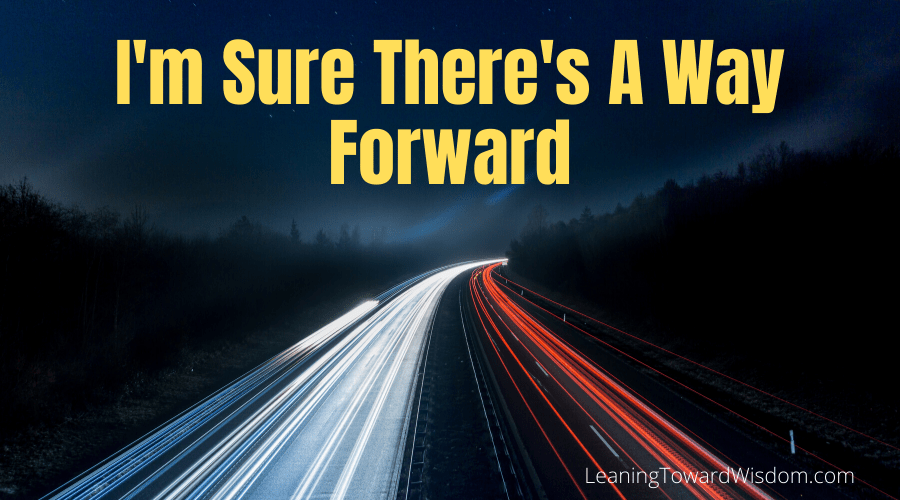
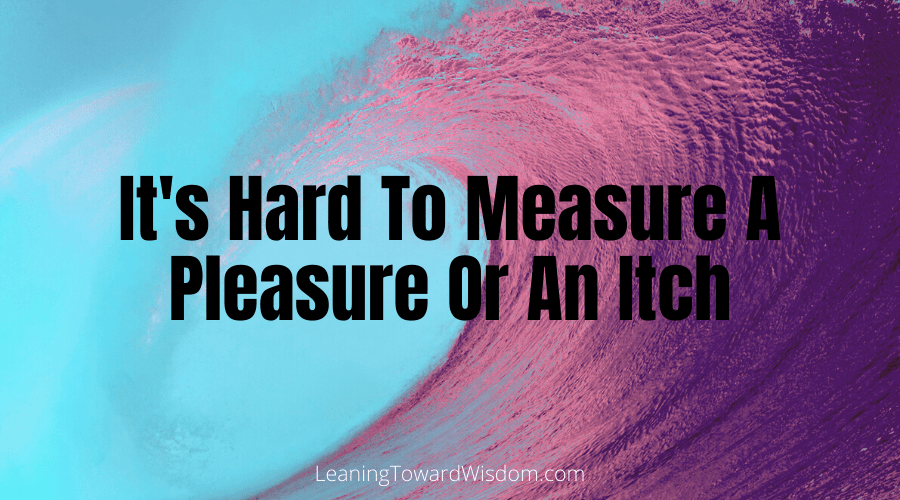
 In 1974 I bought a brand new book by Tom Wheeler. Tom was a writer for Guitar Player magazine, eventually became the chief editor in 1981. A corporate takeover of the magazine caused him to jump ship to become a professor of journalism at the University of Oregon. He died in 2018 when he was 70. I share that because it was his book that occupied me for 3 years before I concluded the truth of my life. I was more in love with being able to play the guitar than I was actually spending time learning to play. In my mind, I can imagine what it might be like to play like Billy Strings. What I’m unable to imagine is the countless hours spent figuring out how to play, which is exactly why Billy Strings is Billy Strings and I’m not. Well, that and the big talent gap between us. 😀
In 1974 I bought a brand new book by Tom Wheeler. Tom was a writer for Guitar Player magazine, eventually became the chief editor in 1981. A corporate takeover of the magazine caused him to jump ship to become a professor of journalism at the University of Oregon. He died in 2018 when he was 70. I share that because it was his book that occupied me for 3 years before I concluded the truth of my life. I was more in love with being able to play the guitar than I was actually spending time learning to play. In my mind, I can imagine what it might be like to play like Billy Strings. What I’m unable to imagine is the countless hours spent figuring out how to play, which is exactly why Billy Strings is Billy Strings and I’m not. Well, that and the big talent gap between us. 😀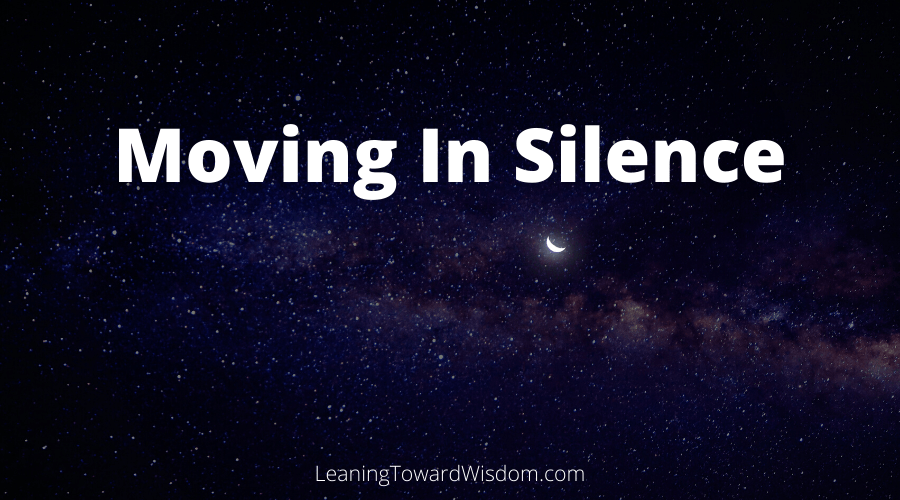
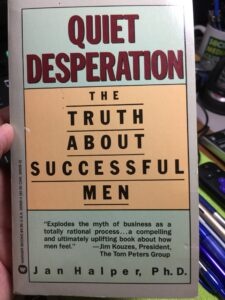 Thoreau wrote, “The mass of men lead lives of quiet desperation.” I’d also been thumbing through an old book (circa 1988) – a paperback that I’ve had for years entitled, “Quiet Desperation: The Truth About Successful Men.”
Thoreau wrote, “The mass of men lead lives of quiet desperation.” I’d also been thumbing through an old book (circa 1988) – a paperback that I’ve had for years entitled, “Quiet Desperation: The Truth About Successful Men.”
